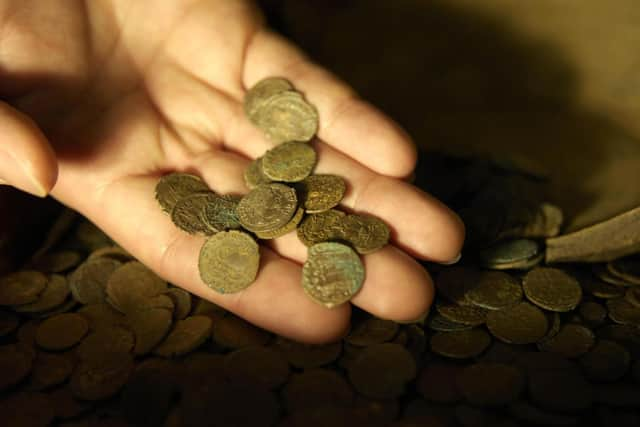Hidden treasure found in Nottinghamshire a record 17 times last year
and live on Freeview channel 276
The Institute of Detectorists said finding treasure gives historians a valuable insight into the past, but encouraged hobbyists to practice ‘responsible’ metal detecting.
Ministry of Justice (MoJ) figures for 2021 show there were 17 finds reported to Nottinghamshire Coroner's Court, which is responsible for holding treasure inquests.
Advertisement
Hide AdAdvertisement
Hide AdThis was up from two the year before and among 212 found in the area since records began in 1995.


Across England and Wales, 908 finds were reported last year, 13 per cent more than the year before, but still below the record 1,061 found in 2019.
The Treasure Act, introduced in 1997, defines treasure as discoveries older than 300 years.
These include coins, prehistoric metallic objects and artefacts that are at least 10 per cent precious metal such as gold or silver.
Advertisement
Hide AdAdvertisement
Hide AdAll potential treasure finds are processed by the British Museum, whose experts advise coroners on whether the find fits the definition of treasure.
If a coroner rules it is treasure, museums are given the chance to acquire the pieces and the finder will be paid a sum, depending on the treasure's value.
However, if the find is determined not to be treasure, or no museums want it, it is returned to the treasure hunter.
Anyone who discovers something they think is treasure must report their finding to the coroner within two weeks, so the court can hold an inquest to decide who should get to keep it. Failure to do so can result in a fine or jail time.